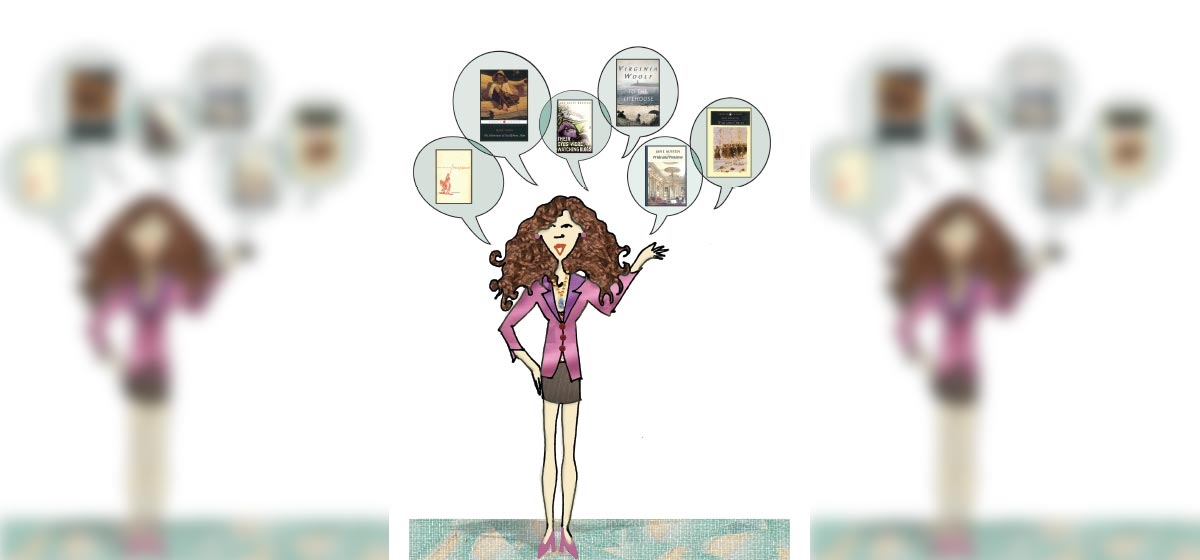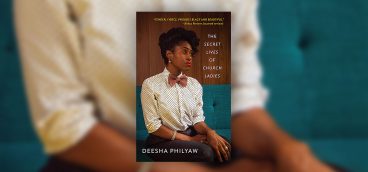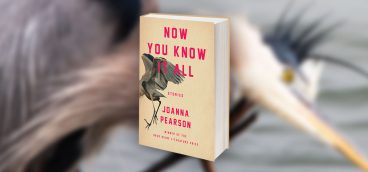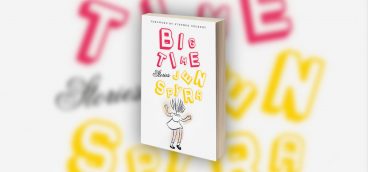
With an estimated 2,000 new and reissued titles entering the book market each week, no one can read everything. Now, thanks to Pierre Bayard, a French critic and psychoanalyst, no one actually has to read anything. The author of How to Talk About Books One Hasn’t Read? (Comment Parler des Livres Que l’On N’a Pas Lu?) sanctions skimming texts, reading reviews and parroting the opinions of others as legitimate alternatives to slogging through entire tomes.
“The ability to talk with finesse about something one does not know is worth more than the universe of books,” he maintains, and his philosophy has been embraced in France with the same eager enthusiasm as the announcement that chocolat and vin rouge are health foods. Who wouldn’t welcome such a prescription?
Just as Freud shocked the public with his ideas on sexuality a century ago, his modern disciple has created a minor sensation in the international literary community by exposing its own dirty little secret: unreading.
“Unreading” refers to the use of alternative methods for addressing a book, which some less generous souls call bluffing or faking. It may include beginning but not finishing a book; consulting the index; checking book blogs; watching Oprah; eavesdropping on other literary conversations; listening with silent empathy and artfully changing the subject.
Unreaders believe in the value of books but often feign a greater knowledge of them than they truly possess (e.g. the person frequently overheard in coffee shops telling his neighbor that Starbucks is a minor character in Moby Dick). They have not read, or cannot read, all that they feel they should and consequently suffer from feelings of inadequacy and fear of exposure. Unlike nonreaders, who simply don’t read and couldn’t care less, unreaders feel guilty: guilty for never reading Little Women or Huckleberry Finn; guilty for giving up on Ulysses or War and Peace; guilty for not knowing every best seller; guilty every time they opt for “American Idol” over the Great American Novel. And, although they may think nothing of misrepresenting themselves on their tax returns or eHarmony postings, they feel guilty about unreading.
Bayard the analyst wishes to free unreaders of their guilt and overcome the trauma of their great literary expectations. He confronts the taboo against unreading — or more correctly, the taboo against acknowledging the widespread practice — by admitting loud and proud to lecturing students at Paris University on books he has not read. He’s done it, and he’s not ashamed. Furthermore, many fine people do it. As he told the New York Times recently, “we intellectuals, who are avid readers, know that there are many ways of reading a book.” It is perfectly normal and natural. Indeed it is a beautiful thing, particularly between consenting adults. “It is possible,” he declares, “to have a passionate conversation about a book one has not read, including, and perhaps especially, with someone else who has not read it.”
Having thus thrown the closet door wide open, unreaders are emerging in droves. How to…? is already a best seller in France and is being snapped up for publication throughout Europe and in the United States. The Internet is filled with reports from bluffers outing themselves with a new sense of pride, now that Bayard has characterized the practice as intellectual. Unreading, once a source of shame and anxiety, is suddenly the sexiest thing going.
But buyers beware! Although it includes a liberating philosophy and many useful suggestions for talking a good book, How to Talk About Books One Hasn’t Read? is not, as some may assume, How Not to Read: For Dummies, nor The Idiot’s Guide to Faking Snobbery, as one blogger has suggested. This slender volume is actually a sincere and inspired inquiry into the nature of books and their subjective meaning (hence the inclusion of a question mark in the title, generally overlooked in translation by unreading reviewers).
Bayard, who has devoted his career to the relationship between literature and psychoanalysis, proposes the use of literary conversation as a form of therapy, continuing where he left off in 2004 with his Can Literature Be Applied to Psychoanalysis?
Talking about books which one has not read is analogous to the Freudian “talking cure,” which relies on free-association to reach the subconscious and reveal issues which one does not realize are inhibiting personal growth. When Bayard suggests that unreaders use the pretext of a book to turn a conversation to themselves, it is with just such a breakthrough in mind. Forced in conversation to draw upon impressions and personal experience, unreaders in effect improvise their own “interior” book, which may carry as much or more meaning for them as the real thing. This creative process transforms the unreader into an empowered book-talker and virtual author, thus — Voila! — demystifying literature and dispatching neurotic feelings of inadequacy. (The idea that a book may reveal a different truth than even the author intended was the subject of two of Bayard’s previous books: Who Killed Roger Ackroyd?, 1998, and Inquiry on Hamlet, 2002.)
If both the experience and merit of the material are subjective, then too much knowledge of a book can actually be a liability when discussing it, for it produces a bias that stifles creative thought. In this assumption, Bayard is in celebrated company. The French cultural icons Michel de Montaigne and Paul Valery (whom Bayard cites), along with Oscar Wilde, Graham Greene, Truman Capote and British essayist Sydney Smith, all insisted on the superiority of one’s own judgment over the partiality imposed by exposure to books. “I never read a book before reviewing it,” Smith famously wrote, “it prejudices one so.” Even Albert Einstein claimed “imagination is more important than knowledge,” and “reading, after a certain age, diverts the mind from creative pursuits.”
Bayard the professor does not oppose reading, only the “linear approach that serves to enshrine books” and inflict “cultural wounds.” Rather than dreading Literature as “a huge wall, a terrifying specter of knowledge,” Bayard advocates the kind of dynamic, imaginative exchange commonly known in this country as a bull session. “The discourse on books that have not been read places us at the heart of a creative process which leads us to their origins,” he avers, suggesting that good literary conversation, whether or not it is based in fact, is in fact an art form. After all, impression, projection and personal expression are the hallmarks of modern art, while improvisation is respected in the theater, comedy, jazz, and on the dance floor. Why not a modern, artistic, therapeutic way of discussing books?





